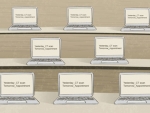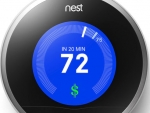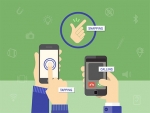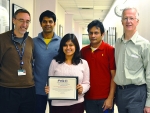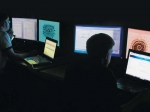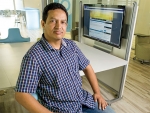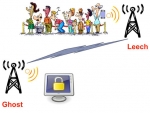Displaying items by tag: department of computer science
A UAB Computer and Information Sciences professor will continue improving security and usability of authentication systems through new funding.
Tagged under
UAB researchers have found automated and human verification for voice-based user authentication vulnerable, and explore how an attacker in possession of voice audio samples could compromise a victim’s security, safety and privacy.
Tagged under
A growing number of researchers, from computer scientists to philosophers, are taking an interest in the "artificial artificial intelligence" offered by Amazon's microwork platform.
By training computers to pick out timing clues in medical records, UAB machine learning expert Steven Bethard, Ph.D., aims to help individual physicians visualize patient histories, and researchers recruit for clinical trials.
Tagged under
The Aura cloud computing system, designed by UAB computer scientist Ragib Hasan, Ph.D., could turn the Internet of Things into the Internet of Cha-ching.
Researcher’s approach allows the phone’s weakest security component — the user — to become its strongest defender.
Tagged under
Tagged under
Tagged under
- campaign for uab
- kidney chain
- office of global engagement
- cancer and radiology
- honors college
- school of medicine
- school of health professions
- school of education
- collat school of business
- school of public health
- school of nursing
- school of engineering
- abroms engel institute for the visual arts
- college of arts and sciences
- science and technology honors program
- southern research institute
- neuroscience
- center for information assurance and joint forensics research
- department of computer science
- department of criminal justice
- division of pediatric infectious diseases
- department of pediatrics
- school of optometry
- school of dentistry
- comprehensive diabetes center
- uab medicine
- department of nutrition sciences
- department of psychology
- department of anesthesiology and perioperative medicine
- alys stephens center
- artplay
- oneal comprehensive cancer center
Computer and Information Sciences researchers introduce a secure framework for protecting users while employing apps accessing location information.
UAB researchers identify fundamental problems with a popular technology for securing communications over the Internet and reveal automated mimicry attacks that enable wiretapping.
Tagged under
Tagged under
UAB researchers are investigating game-based verification that may improve computer security and reduce user frustration compared to typical “type-what-you-see” CAPTCHA tools that use static images.
Tagged under
Tagged under
Alabama consumers can better respond to cases of identity theft when equipped with knowledge of reporting process.
Tagged under
UAB is reaffirmed as National Center of Academic Excellence in Information Assurance and Cyber Defense Research.
Tagged under
Tagged under
An innovative solution for safeguarding personal information relies on your proximity instead of your memory.
Tagged under





